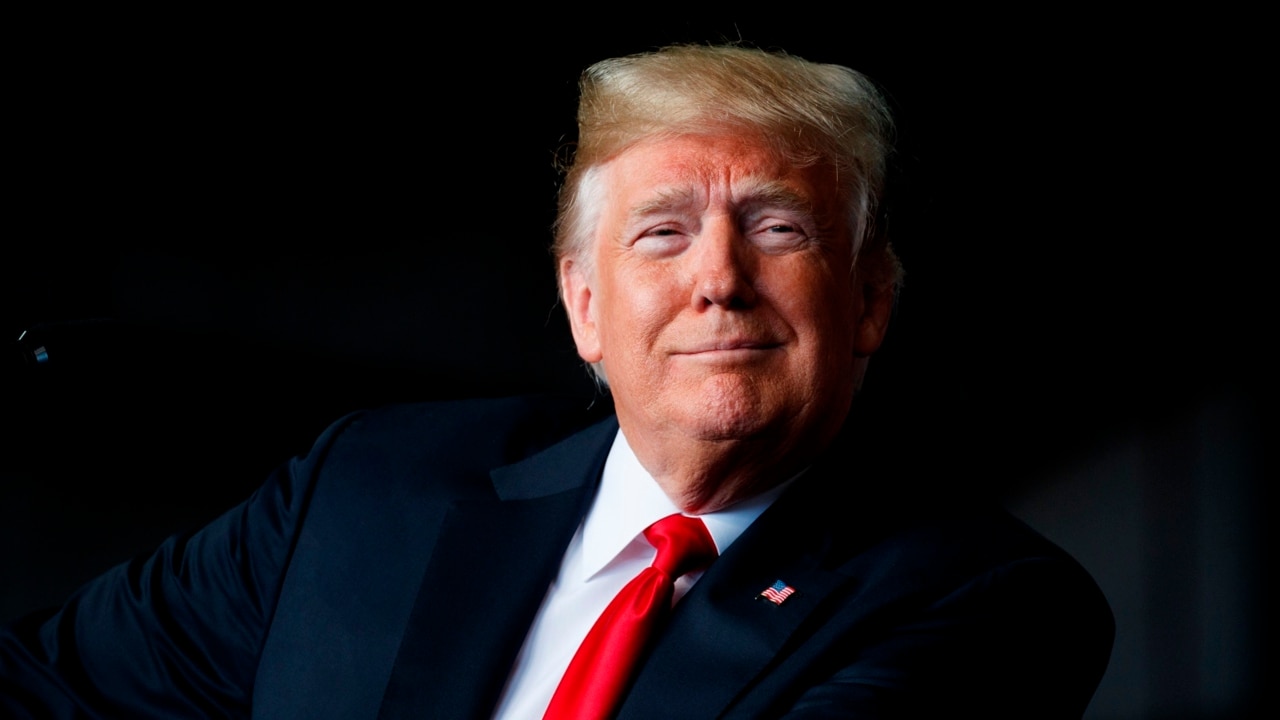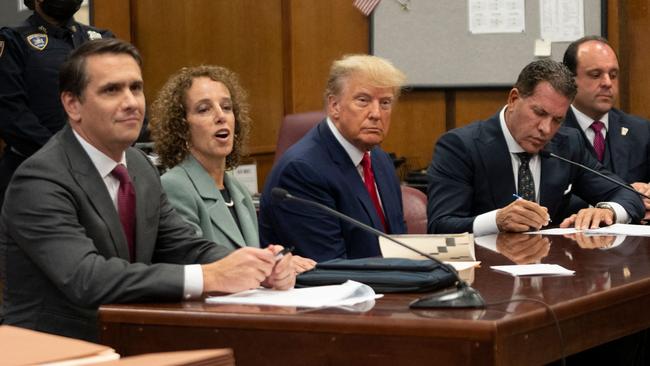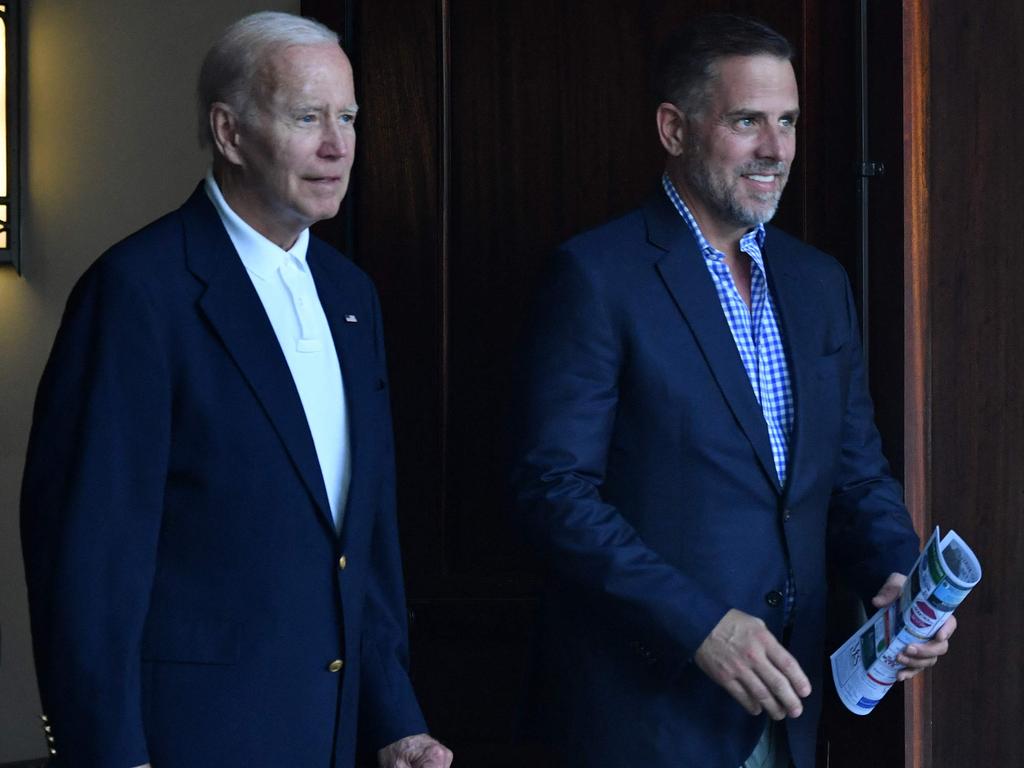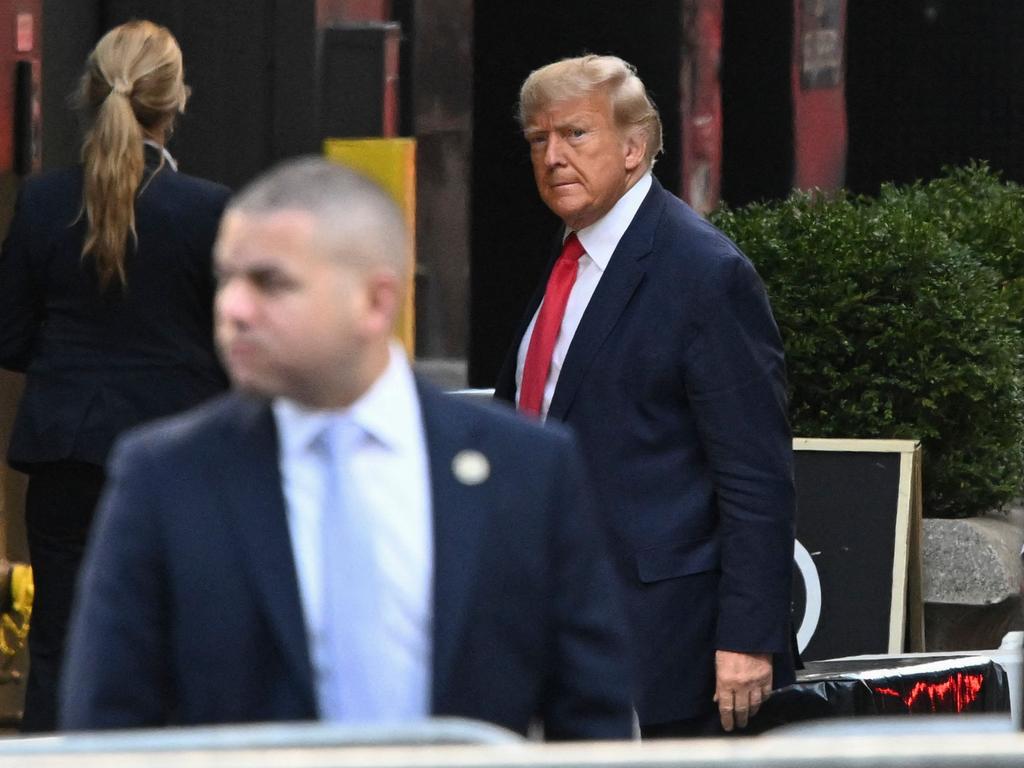‘Skimpy, skeletal, a mistake’: expert lawyers slam Donald Trump indictment
Top legal experts have attacked Manhattan DA Alvin Bragg’s controversial indictment of Donald Trump on 34 charges of business fraud.

“Skimpy, skeletal and a mistake” is how top legal experts have cast Alvin Bragg’s controversial indictment of Donald Trump, revealed to the public on Tuesday (Wednesday AEST) for the first time after the former president’s historic arraignment in Manhattan.
The indictment revealed Mr Trump was charged with 34 counts of “falsifying business records in the first degree”, each a breach of New York Penal code section §175.10, and each of which in theory could attract a jail term of up to four years.
“As of now I would call it a mistake. Do you go after a prominent politician with untested legal theory?,” said Rick Hasen, a law professor specialising in election finance rules at the University of California, Los Angeles.

“It’s skimpy, it doesn’t give a lot of detail, it’s surprising he didn’t give more of the legal arguments,” he told The Australian in an interview hours after the indictment was made public
Mr Trump was expected to be charged with multiple counts of falsifying business records under New York law, related to a series of hush money payments made to porn star Stormy Daniels in October 2016 via his former lawyer Michael Cohen, whom Mr Trump later reimbursed.
“The defendant, in the County of New York and elsewhere … with intent to defraud and intent to commit another crime and aid and conceal the commission thereof … made and caused a false entry in the business records of an enterprise,” the indictment read, 34 times, without defining “another crime”.
Greg Dolin, a former judge and law professor at the University of Baltimore, told The Australian the indictment provided little new information, calling it “skeletal”.
“We are no further today than we were yesterday; as a public we’re still left guessing what the other crime was that he was supposedly trying to cover up,” Professor Dolin said.
Democrat District Attorney Alvin Bragg would need to link the falsification of business records to the intent to commit another crime, such as breaking federal campaign finance laws, to upgrade what are normally misdemeanours to felonies, which attract stiffer penalties and a longer statute of limitations.
The dates attached to each of the 34 counts varied from February 14th, 2017 to December 5th, 2017, a period during which Mr Trump was president.
The same language and penal code was used for each of the 34 counts, although each referred to a different cheque or ‘voucher’, suggesting the district attorney Alvin Bragg found 34 payments he believes were illegal.
“Maybe he [Bragg] doesn’t want to show his cards, maybe he doesn’t have a strong case, or didn’t think through the political implications through,” Professor Hasen said, adding that the legal arguments could now drag on “for years”.
Professor Dolin said Mr Trump’s team of lawyers were likely to request the minutes of the deliberations of the grand jury, which last week indicted Mr Trump after a week of speculation.
“There are still a host of questions: such as whether or not a state DA can prosecute a violation of federal law, and what was said to the grand jury,” he said.
“Remember the old saying a good DA can convince a grand jury to indict a ham sandwich”.








To join the conversation, please log in. Don't have an account? Register
Join the conversation, you are commenting as Logout